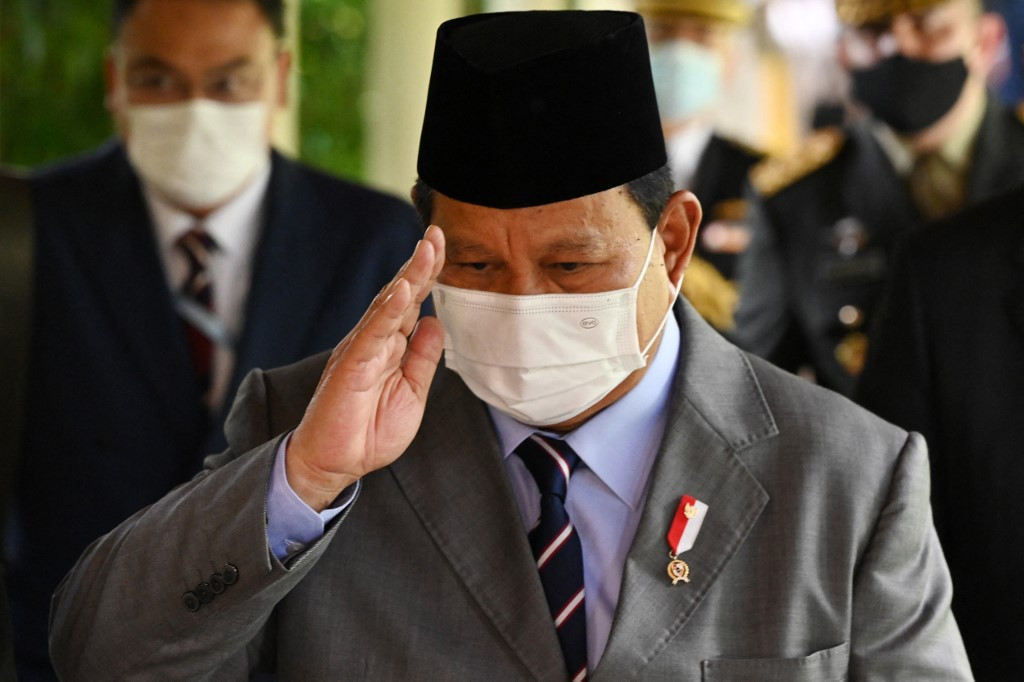The Asian way for Asian security — Prabowo’s proposition should be heard
Alarmingly, Asia is already on the brink of being swept into military groupings.
Change Size

I
n a battle for discourse dominance at the Shangri-La Dialogue, Indonesian Defense Minister Prabowo Subianto’s words may have been easily overlooked by many observers.
In fact, many policymakers and pundits were more interested in what United States Defense Secretary Lloyd Austin had to say about Taiwan, or how Chinese Defense Minister Wei Fenghe would frame China’s progress in hypersonic weapons, than paying keen attention to Prabowo’s proposition of the Asian way.
Despite the war in Ukraine, defense ministers from almost all major western powers at the dialogue chose to declare that Asia was on their minds.
Austin told the audience that America’s commitment to the Indo-Pacific is “the core organizing principle of American national security policy” – he made it plain that Asia is still America’s priority. France’s new Defense Minister Sebastien Lecornu said French engagement in Asia is “one of the intangible elements of our sovereignty and of our defense and security policy”.
External participation and exchange in Asian security should all be welcomed, but Minister Prabowo’s “Asian way” is a lucid reminder that Asian countries should be in the driver’s seat of regional security. To borrow French President Emmanuel Macron’s words, the “Asian way” is Asia proposing its “strategic autonomy”.
Prabowo’s proposition of the Asian way is also tacit rejection of the traditional western way of forging alliances: Hedging against each other by becoming members of an exclusive club did not bring peace. This is the catastrophic and expensive lesson being learned from the war in Ukraine.
Alarmingly, Asia is already on the brink of being swept into military groupings. Though claiming not to be seeking a cold war with China in its strategic aims, by establishing two security blocs aiming at containing China – the Quad and then AUKUS, the US is making Asian countries choose sides.
Prabowo’s proposition is perhaps Asia politely saying “you are making me rather uncomfortable”. The pattern of military build-up and eventual war in Europe involving the US-led NATO and Russia could well develop in Asia, too; but it could also be avoided by Asian states not joining the game of hegemonism and alliance-making.
At Shangri-La, Prabowo timely put forward the idea of non-alignment again into the current international discussions on security. He said choosing to be non-aligned does not mean Indonesia is sitting on the fence, rather the decision is conscious because “for us to respect the interests of all our neighbors and of all the big powers in this region is essential”.
Alas, the spirit of opting to be non-aligned the foundation of which was laid during the 1955 Asia-Africa Conference in Bandung, Indonesia seems to have been lost in the tense rhetoric of great power conflicts of our time.
Statistics from various international organizations show the Asian share of global gross domestic product stands approximately at 40 percent with the Asian Development Bank predicting in 2050 the region’s economy will account for half of the world’s total. On top of that, Asia is home to 60 percent of the world's population.
With virtually all major global players make a scramble for Asia as they try to secure their slice of the cake, making sure regional conflicts do not veer into hot wars is getting ever more urgent.
Indonesia is set to host the Group of 20 summit this November when hopefully the message of the Asian way will be reiterated, stressed and heard. Inspirations from the 1955 Bandung conference should be picked up again and carried on.
After all, in what international policymakers call “the Asian century”, Asian countries should be in charge of Asia.
***
The writer is a with CGTN Radio and former Washington bureau chief with China Radio International. The views expressed are her own.









